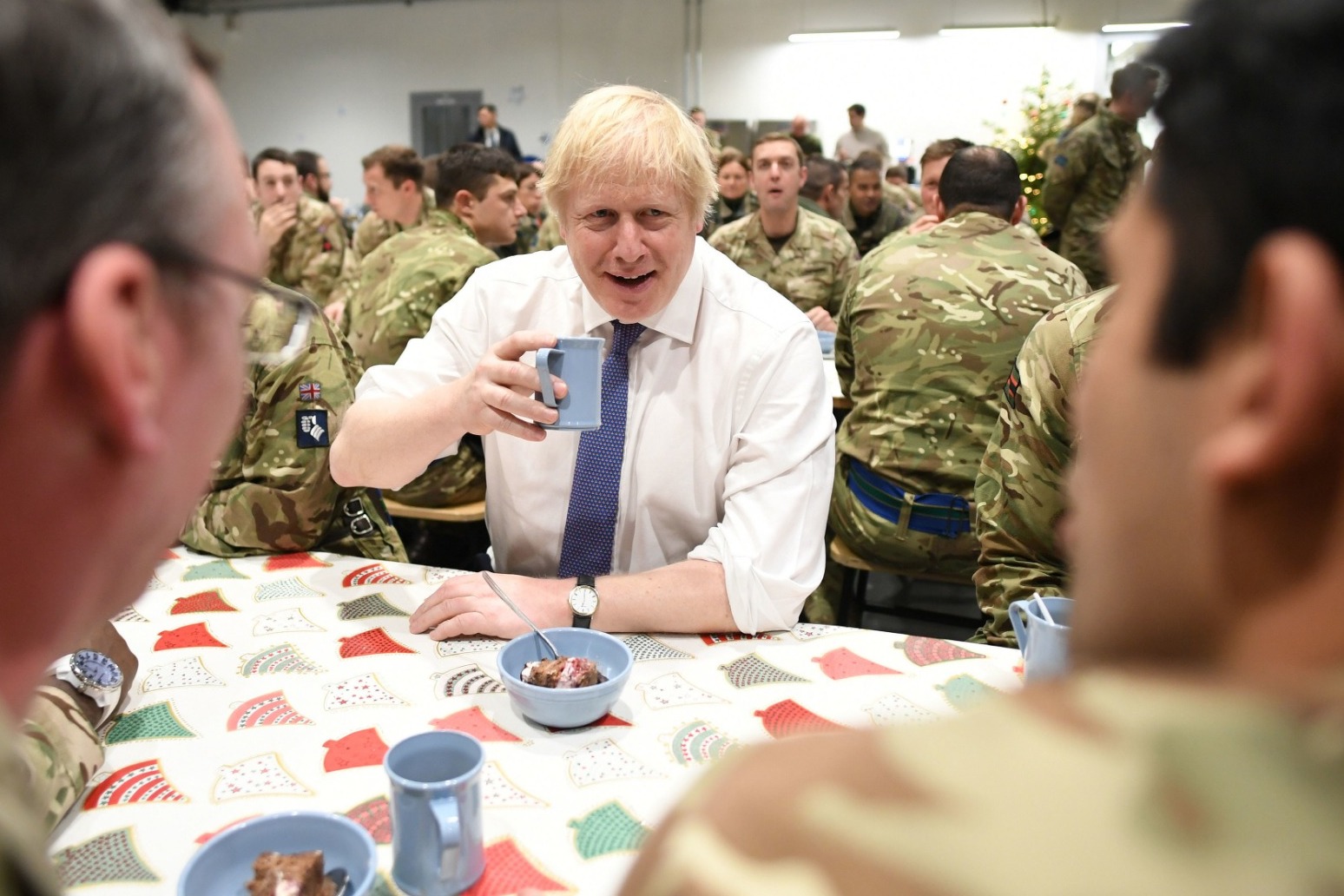
JOHNSON, MACRON AND MERKEL CALL FOR RESTRAINT IN PERSIAN GULF
Prime Minister Boris Johnson and his French and German counterparts, Emmanuel Macron and Angela Merkel, have called for all sides to work towards an urgent easing of tensions in the Persian Gulf.
The three leaders released a statement saying while they were concerned by the "negative" role Iran has played in the region - including through forces directed by General Qassem Soleimani, whose killing by the United States last Friday sparked the crisis - there was now "an urgent need for de-escalation".
"We call on all parties to exercise utmost restraint and responsibility. The current cycle of violence in Iraq must be stopped," the joint statement, released late on Sunday night, said.
"We specifically call on Iran to refrain from further violent action or proliferation, and urge Iran to reverse all measures inconsistent with the JCPOA (the Iran nuclear deal).
"We recall our attachment to the sovereignty and security of Iraq. Another crisis risks jeopardising years of efforts to stabilise Iraq.
"We also reaffirm our commitment to continue the fight against Daesh (Islamic State), which remains a high priority. The preservation of the Coalition is key in this regard. We therefore urge the Iraqi authorities to continue providing the Coalition all the necessary support.
"We stand ready to continue our engagement with all sides in order to contribute to defuse tensions and restore stability to the region."
Around 400 UK troops are stationed in Iraq in the fight against IS, while the US has 5,200, prompting fears of a withdrawal that could cripple the battle against the terror group.
Meanwhile, Mr Johnson is to assemble key ministers to discuss the spiralling crisis in the Middle East after the US's assassination of Iran's top military leader.
The Prime Minister is also likely to continue high-stakes diplomatic discussions with world leaders on Monday over the Donald Trump-ordered drone strike on Gen Soleimani.
After speaking to the US President on Sunday, Mr Johnson broke his silence to say the UK "will not lament" the death of the leader who he said was "a threat to all our interests".
The PM urged de-escalation from all sides, saying that calls for reprisals "will simply lead to more violence in the region and they are in no one's interest" after the killing in Baghdad on Friday.
But a short while later, Mr Trump threatened to retaliate "perhaps in a disproportionate manner" if Iran strikes a US citizen or target.
Meanwhile, Iran announced it will abandon the limits in the unravelling nuclear deal on fuel enrichment, its uranium stockpile and research activities in a move that could bring it closer to assembling an atomic bomb.
And The Times quoted an unnamed senior commander in the elite Quds Force, which Gen Soleimani commanded, as warning British soldiers could be fatally attacked as collateral.
"Our forces will retaliate and target US troops in (the) Middle East without any concern about killing its allies, including UK troops, as this has turned in to a fully-fledged war with much collateral damage expected," the commander said.
The PM said he will be speaking to Iraq "to support peace and stability" after its parliament called for the expulsion of foreign troops, including British soldiers working against IS.
Mr Johnson spoke to President Macron and Chancellor Merkel after arriving back in the UK on Sunday morning from his Caribbean holiday amid mounting criticism.
Amid fears of an all-out war, Iraq's parliament passed a non-legally binding bill calling for the expulsion of all foreign forces.
The Ministry of Defence was understood to be awaiting the decision of the Iraqi government before acting over UK soldiers based there as part of the US-led coalition.
A UK Government spokesman said: "We urge the Iraqi government to ensure the coalition is able to continue our vital work countering this shared threat."
In response to the killing of Gen Soleimani, Iraqi prime minister Adel Abdul-Mahdi said the parliament could end the presence of foreign troops or restrict their mission training local forces. He backed the first option.
Foreign Secretary Dominic Raab spoke to him on Sunday morning.
Published: by Radio NewsHub